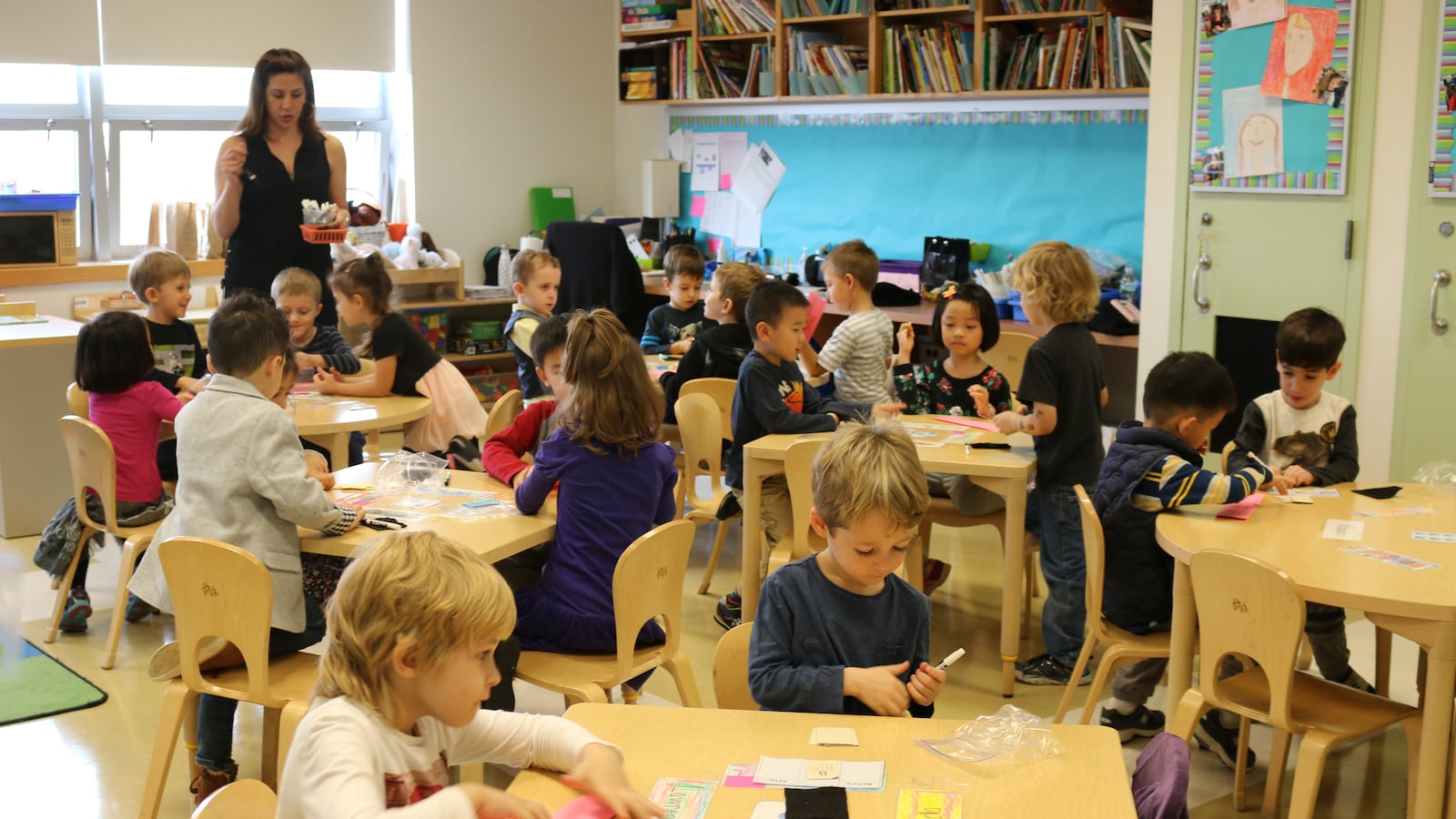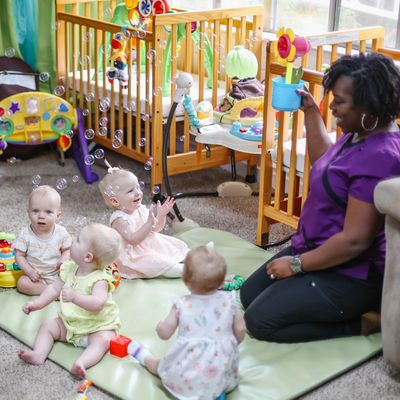How Private School programs enhance critical thinking and teamwork
Wiki Article
Recognizing Elementary School: Key Realities and Amazing Tasks for Every Trainee
Elementary school functions as an important foundation for trainees, blending scholastic understanding with the development of social abilities. This period is essential for fostering emotional knowledge and strength. Involving tasks can improve interest and motivation, but the challenge depends on discovering the ideal equilibrium. As educators and moms and dads navigate this landscape, comprehending the diverse nature of elementary school ends up being vital. What methods can successfully sustain trainees in this transformative stage?The Importance of Social Abilities in Elementary School
Scholastic knowledge is important, social skills play an important role in quality college development. During these developmental years, children find out to interact with their peers, discuss disputes, and construct friendships. Social abilities include a variety of expertises, consisting of reliable communication, empathy, and team effort. These capabilities enable trainees to navigate the complexities of social dynamics within the classroom and beyond.As kids take part in group tasks and collective tasks, they create essential social skills that contribute to their emotional intelligence. This foundational expertise fosters a sense of belonging and improves overall well-being. In addition, kids that have solid social abilities have a tendency to experience better academic results, as they are more probable to participate proactively in discussions and seek assistance when required.

Essentially, the growing of social abilities during grade institution is not just useful but essential for cultivating a well-shaped person gotten ready for future obstacles.
Stabilizing Academics and Imagination
As students proceed with elementary school, balancing academics with creativity becomes necessary to their overall development. This balance fosters important reasoning, analytic, and development, skills required for future success. Academic subjects provide foundational expertise, while innovative tasks encourage pupils to express themselves and discover originalities.Including imagination right into the curriculum can enhance engagement and motivation, enabling pupils to get in touch with the material on a deeper level (Kindergarten). Jobs that mix topics, such as art and scientific research, can stimulate curiosity and promote a love for learning
Innovative electrical outlets like music, drama, and aesthetic arts aid trainees establish emotional intelligence and durability. These experiences add to a versatile education and learning, preparing students for a quickly transforming world.
Ultimately, focusing on both academics and creativity furnishes pupils with a diverse capability, enabling them to browse challenges and confiscate opportunities successfully throughout their educational trip and beyond.
Engaging Tasks to Improve Understanding
Various appealing activities can considerably improve finding out experiences for elementary school pupils. These activities not just make finding out satisfying yet additionally aid enhance crucial concepts. As an example, hands-on experiments in scientific research classes allow students to check out theories almost, cultivating curiosity and deeper understanding. Similarly, interactive narration sessions can boost literacy abilities while stimulating creativity and imagination.Group jobs urge partnership, teaching students the importance of team effort and communication. Including technology, such as academic video games and digital quizzes, can additionally astound pupils' interest and make discovering more vibrant. Arts and crafts jobs can assist in the advancement of great motor skills while providing an innovative outlet.
Additionally, outside tasks, like nature walks or scavenger hunts, connect students with the setting and advertise physical well-being. By incorporating these interesting tasks into the educational program, educators can create a promoting learning ambience that satisfies varied knowing styles and keeps students encouraged.
The Function of Parental Assistance in Education
Parental support plays a significant function in the academic journey of quality school students. Research indicates that when moms and dads proactively take part in their child's education and learning, it favorably affects academic performance, motivation, and general well-being. Kindergarten. Constant participation, whether through research help or attending school events, cultivates a complacency and strengthens the worth of educationFurthermore, efficient interaction in between educators and parents enhances the finding out experience. Parents who work together with instructors can much better understand their kid's difficulties and staminas, enabling tailored assistance. This collaboration urges accountability and sets high expectations for pupils.
Furthermore, adult attitudes towards education considerably influence youngsters's viewpoints. It grows curiosity and strength in their youngsters when parents show a favorable expectation on understanding. Ultimately, the structure of adult support is essential in forming pupils' mindsets, actions, and scholastic success throughout their elementary school years.
Developing a Positive Understanding Setting
Creating a positive understanding setting is essential for cultivating scholastic success and psychological wellness amongst grade college students. Such a setting advertises engagement, motivates partnership, and boosts inspiration. Teachers play a considerable duty in establishing this environment by executing strategies that prioritize inclusivity, respect, and assistance.Classroom monitoring practices, such as clear expectations and positive responses, are very important in supporting a sense of safety and security. Additionally, incorporating varied teaching approaches can cater to numerous discovering styles, making certain that all pupils feel valued.
Urging peer interactions and group tasks also cultivates social skills and a feeling of neighborhood. Celebrating accomplishments, no matter exactly how little, reinforces favorable behavior and boosts self-worth.
Ultimately, a favorable knowing environment not just improves scholastic performance yet additionally cultivates psychological strength, assisting students thrive both inside and outside the classroom. This foundation is considerable for their total development and long-lasting learning journey.
Strategies for Developing Vital Thinking Abilities
Efficient approaches for establishing critical thinking skills in elementary school include encouraging inquiry-based discovering and promoting analytical activities. Inquiry-based knowing fosters interest and allows students to explore concerns, while analytical tasks challenge them to use their knowledge in functional situations. Together, these approaches improve students' capability to think seriously and separately.Motivating Inquiry-Based Knowing
Exactly how can teachers promote a class environment that promotes inquiry-based discovering? Educators can produce an atmosphere that encourages inquisitiveness by posing open-ended inquiries and assisting in discussions that prompt students to explore numerous perspectives. Motivating pupils to ask their very own inquiries can better promote their essential thinking skills. Integrating real-world problems and hands-on activities allows pupils to involve straight with the material, fostering deeper understanding. In addition, giving possibilities for collective projects can boost peer-to-peer knowing, where students share insights and develop on each various other's ideas. By integrating modern technology and sources that sustain exploration, instructors can help students take possession of their knowing journey, therefore cultivating a mindset of query that extends past the classroom.Promoting Problem-Solving Activities
While cultivating analytic activities in the class, teachers can considerably enhance Kindergarten students' important reasoning skills. By integrating hands-on tasks, seminar, and real-world situations, teachers encourage pupils to evaluate circumstances, recognize patterns, and discover multiple options. Involving trainees in collaborative difficulties not just promotes teamwork yet likewise improves their capacity to express thinking and justify their choices. In addition, integrating innovation with coding simulations or workouts can boost creative analytical techniques. Evaluating students' idea procedures through reflective methods permits deeper understanding and improvement. On the whole, advertising problem-solving tasks cultivates an environment where critical assuming thrives, equipping trainees with crucial abilities for future scholastic and life challenges. These approaches ultimately prepare learners to navigate complicated problems with self-confidence and advancement.
Frequently Asked Inquiries
What Age Do Children Generally Begin Elementary School?
Youngsters typically start grade college at around age six. This age can vary a little depending upon regional educational policies and specific readiness, but 6 years old is the most usual beginning point for official education and learning.Just How Can I Assist My Kid With Homework?
To aid with homework, moms and dads can produce a structured atmosphere, develop a regular, motivate inquiries, give sources, and supply assistance without providing straight responses, fostering self-reliance and critical thinking in their kid's knowing procedure.What Prevail Elementary School Learning Difficulties?
Usual elementary school learning difficulties consist of troubles with checking out comprehension, mathematics ideas, focus span, and social abilities. These challenges can influence scholastic performance and require tailored assistance to help students achieve their complete capacity.Just How Can Moms And Dads Interact Successfully With Teachers?
Effective interaction in between moms and dads and instructors can be accomplished via regular updates, open dialogues, set up conferences, and active listening. Building a joint connection cultivates understanding and supports the youngster's academic trip positively.What Extracurricular Tasks Are Readily Available in Quality Institution?
Grade schools typically offer a range of extracurricular tasks, including sports teams, music and art programs, dramatization clubs, and academic competitions. These activities boost social skills, foster team effort, and urge creativity among trainees outside the class.
Grade college serves as a vital foundation for pupils, blending academic discovering with the advancement of social skills. Numerous engaging tasks can considerably enhance learning experiences for grade school students. Creating a favorable knowing environment is necessary for fostering academic success and psychological wellness among quality school trainees. Inquiry-based understanding fosters interest and allows trainees to discover inquiries, while analytical activities challenge them to apply their knowledge in functional situations. While promoting problem-solving activities in the class, teachers can significantly improve pupils' important thinking abilities.
Report this wiki page